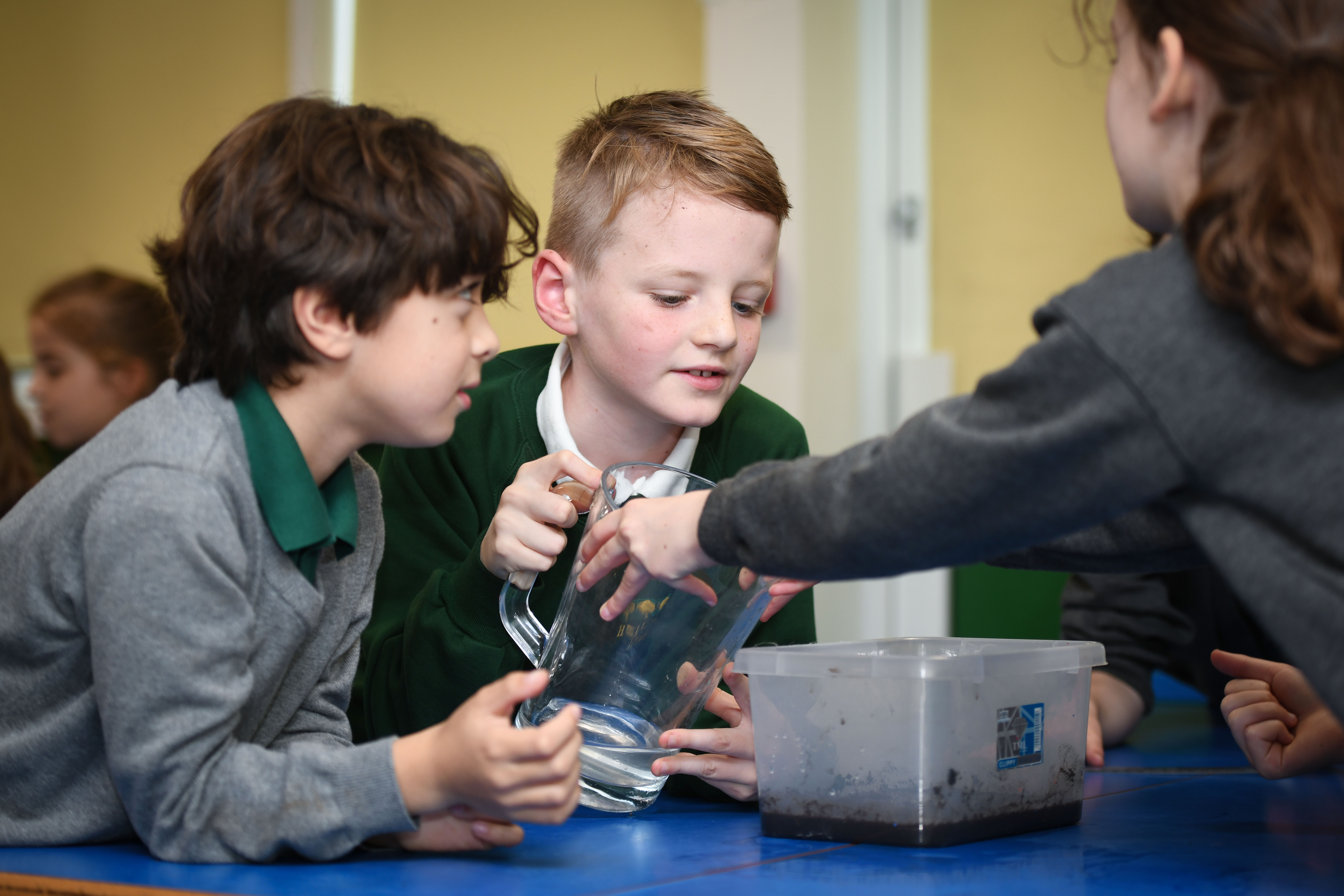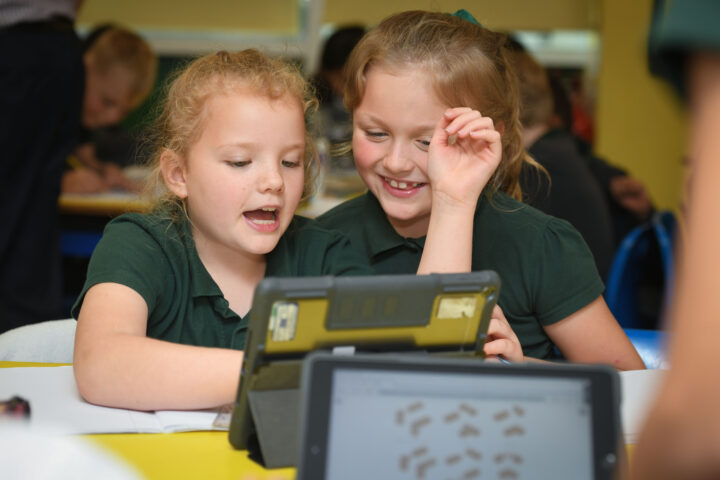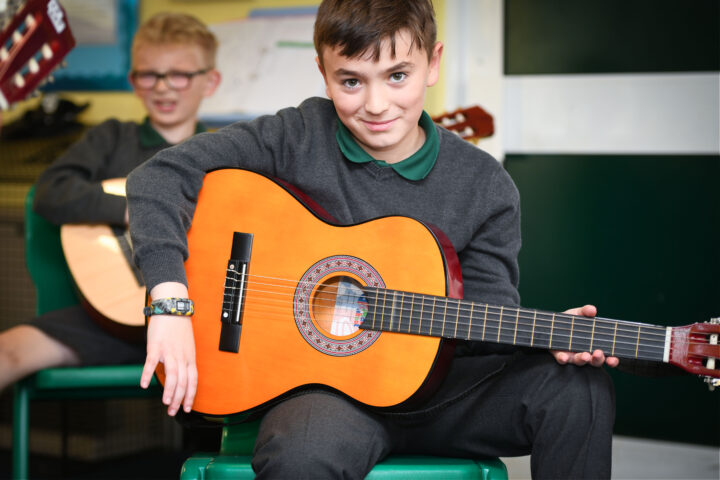Year 4

Year 4
In Year 4 the children will be taught the full breadth of our curriculum, which has been carefully sequenced to build on their prior learning. Each individual subject discipline will give the children a chance to embed and expand upon their learning and make connections across subject matter.
As they work their way through Year 4, the children will take increasing ownership over their learning. Children will be given more opportunities to challenge themselves in a safe space and feel more comfortable asking increasingly complex questions about the world around them.

Through an engaging non-core curriculum, the children will explore a variety of progressive learning units. History focuses on early civilisations including The Maya. Children will also travel back in time to discover what life was like during World War II, by learning how to ‘make do and mend’ understanding how everybody contributed to the war effort. In addition to this, children will also learn about the Roman Empire, the invasion of Britain, and the legacy left as a result. Geography learning allows children delve into life in an Indian village – and compare the differences between lifestyles across two continents. It also allows them to discover where and why earthquakes occur and create a model seismograph to measure seismic waves. Personal Development and Well-being is also an important aspect of the Year 4 Curriculum. Through a variety of engaging texts, children learn about different types of relationships and the nature of the consequences of bullying and how to deal with it – online and offline. In PDW, children also identify a variety of emotions and strategies to help them self-regulate negative behaviours.
English in Year 4 links closely to our key questions and themed learning in order to spark the children’s interest and create a real purpose for writing. At the heart of all our English work is a strong foundation in reading and we expose the children to a wide variety of interesting texts, including fiction, such as Shakespeare’s Macbeth, Fox by Margaret Wild, Farther by Grahame Baker Smith and the Firework Maker’s daughter by Phillip Pullman. Focussing specifically on developing children’s ability to analyse writers’ choices, the children will focus on the purpose and language of a text, as well as continuing to develop reading skills – such as inferring, predicting and summarising. Children will use a range of other quality texts to use as models to scaffold their writing and create engaging, well-structured, pieces of work. Using tiered vocabulary will help the children develop a stronger awareness and understanding of vocabulary. Additionally, being given the chance to vocalise their ideas through drama and debate will aid them in developing good rhetoric to further support their writing. The key grammar covered in Year 4 will include punctuation for speech, fronted adverbials and embedded clauses.
In Maths, to support the school’s practice of interleaving, the children will be taught in shorter blocks as outlined through our CanDo approach. Expanding on and deepening their learning from Year 3, children will learn the place value of four-digit numbers – this will give them a solid foundation to help them compare, order, estimate and round numbers. Further learning will include decimals, including money, identify a range of angle types and order these by size, understand the differences between discrete and continuous data and develop their problem-solving skills by independently deciding which methods to use. Reasoning and problem-solving feature throughout every Maths lesson and children are encouraged to articulate their approaches to problems so that they can explore a variety of methods. Linking to our PDW, children will be encouraged to embrace challenges and feel safe to make, and learn from, their mistakes and misconceptions.
In Science, children continue to develop their investigative skills through a range of taught units such as electricity, sound, the digestive system and states of matter. Particularly focussing on developing the children’s independence in Science, so that they can confidently generate their own lines of enquiry, making decisions about what they will investigate, how they will carry out these investigations and how best to record and present their findings. This enables children to expand their knowledge through an enquiry-based approach which means they find out most of the answers for themselves. Children also develop skills such as how to create informed predictions, understanding comparative and fair tests, identifying patterns in results, drawing conclusions from investigations and posing further questions to explore. Children love the challenges they are presented, including creating a Lego house with a working light switch and doorbell, trying to find the most effective way to stop an ice cube from melting and creating a practical, interactive version of how the digestive system works!

Key Questions to drive learning and progress
- Who were the Mayan people?
- Can I use my cloud busting skills to create a poem?
- Blood on his hands: Can Macbeth right his wrongs?
- Will you go Farther than your forefathers?
- How would you have survived as a Blitzed Brit?
- Where can I find a magic pencil?
- Why is it important to be a Rights Respecting School?
- Would you risk everything to achieve your dream?
Exciting events in Year Four
- Mayan workshop
- Swimming lessons
- Visit to Birmingham Hippodrome – Pantomime
- A two night residential to Whitemoor Lakes.
- Whole class teaching, across the year, of a musical instrument such as the clarinet or tenor horn.
Class Novels include
The Firework Makers Daughter by Phillip Pullman, The Explorer by Katherine Rundell, Cloud Busting by Malorie Blackman, The Wind in the Willows by Kenneth Graham, How to Train your Dragon by Cressida Cowell, The Suitcase Kid by Jacqueline Wilson.
